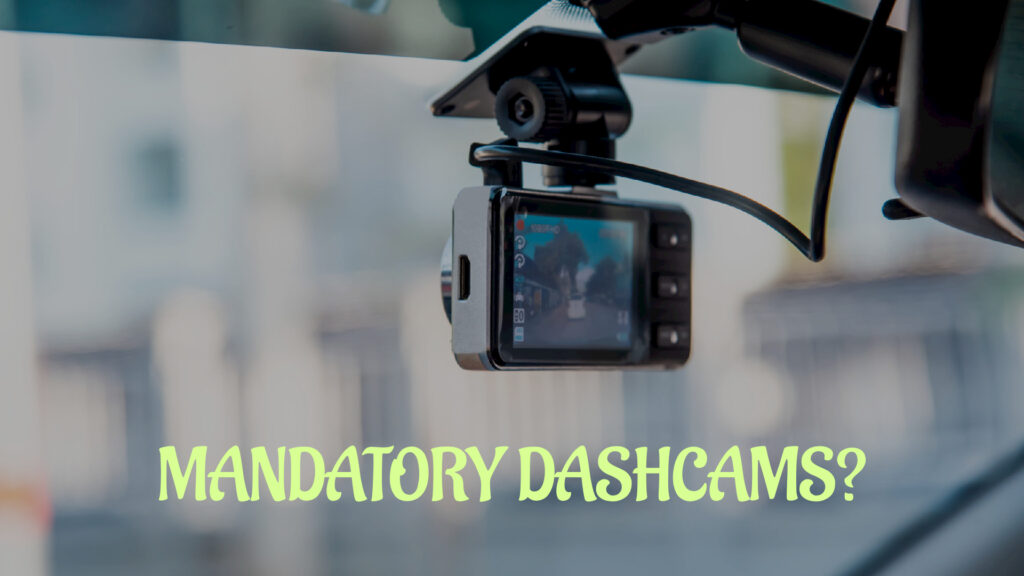Public Support for Mandatory Dash Cams?
Imagine this: you’re cruising down the highway, the sun setting in the distance, music humming softly in the background. Suddenly, out of nowhere, a car swerves into your lane, narrowly missing your bumper. Your heart races, adrenaline pumping through your veins. In moments like these, wouldn’t it be reassuring to have a reliable witness by your side, capturing every crucial detail? Enter dash cams – the silent guardians of the road. But should they be mandatory? Let’s dive into this hotly debated topic and explore why public support for mandatory dash cams might just be on the rise.

The Rise of the Dash Cam Phenomenon
Picture this: you’re driving along a quiet country road, the scenery serene and peaceful. Suddenly, a deer darts across the road, catching you off guard. You slam on the brakes, narrowly avoiding a collision. Your heart pounds in your chest as you take a moment to catch your breath. Moments like these are why dash cameras have become increasingly popular among drivers worldwide. These small devices, mounted discreetly on the windshield, record everything that unfolds on the road ahead, providing invaluable evidence in the event of an accident or dispute.
Why You Need a Dash Cam: Your Silent Witness
You might be thinking, “But why do I need a dash cam? I’m a safe driver; accidents happen to other people.” Ah, but here’s the thing – accidents don’t discriminate. They can happen to anyone, anywhere, at any time. And when they do, having a dash cam can make all the difference. Imagine you’re involved in a fender-bender with another driver. Tempers flare, accusations fly, and suddenly it’s your word against theirs. Without solid evidence to back up your claims, you could find yourself facing an uphill battle to prove your innocence. But with a dash camera recording every moment, you have a silent witness by your side, ready to testify on your behalf.
The Power of Visual Evidence: A Case Study
Let me tell you a story about Sarah, a young woman who found herself in a similar predicament. One sunny afternoon, as Sarah was driving home from work, she was rear-ended by another vehicle at a red light. Both drivers pulled over to assess the damage, but things quickly took a turn for the worse. The other driver, let’s call him Mr. Smith, claimed that Sarah had slammed on her brakes for no reason, causing him to collide with her car. Sarah vehemently denied the accusation, but without any witnesses to corroborate her story, it was essentially a case of he said, she said. That is until Sarah remembered something – her trusty dash cam. She quickly retrieved the footage from the incident, which clearly showed Mr. Smith’s car approaching from behind at high speed and failing to stop in time. Armed with this compelling evidence, Sarah’s insurance adjuster had no choice but to accept her version of events, and Mr. Smith was found liable for the accident.
The Role of Insurance Adjusters: Navigating the Claims Process
Speaking of insurance adjusters, let’s take a closer look at their role in the claims process. These are the individuals tasked with investigating accidents, assessing damage, and determining fault. It’s a tough job, requiring a keen eye for detail and a knack for negotiation. But even the most seasoned adjusters can find themselves facing conflicting accounts and murky evidence. That’s where dash cams come in. By providing clear, indisputable footage of what transpired on the road, dash cameras take the guesswork out of the equation, allowing adjusters to make informed decisions based on facts rather than hearsay.
The ESF Factor: Enhancing Safety on the Roads
Now, you might be wondering, “What about privacy concerns? Aren’t dash cams a violation of my rights?” Valid questions, indeed. While it’s true that dash cams have the potential to capture sensitive information, such as license plate numbers and bystanders’ faces, many models offer features like GPS tracking and encrypted storage to safeguard your data. Plus, when weighed against the potential benefits – namely, enhanced safety on the roads – the argument for mandatory dash cams becomes much more compelling. Take the European Safety Forum (ESF), for example, which recently conducted a study on the impact of dash cams on road safety. Their findings? Dash cams have the potential to reduce accidents by up to 30%, thanks to their ability to deter reckless driving behavior and provide valuable evidence in the event of a crash.
Conclusion
In conclusion, the case for mandatory dash cams is stronger than ever. With their ability to capture crucial evidence, protect drivers from false accusations, and enhance overall road safety, dash cameras have become indispensable tools for modern motorists. So the next time you hit the road, consider investing in a dash cam – it could be the silent guardian that saves the day.